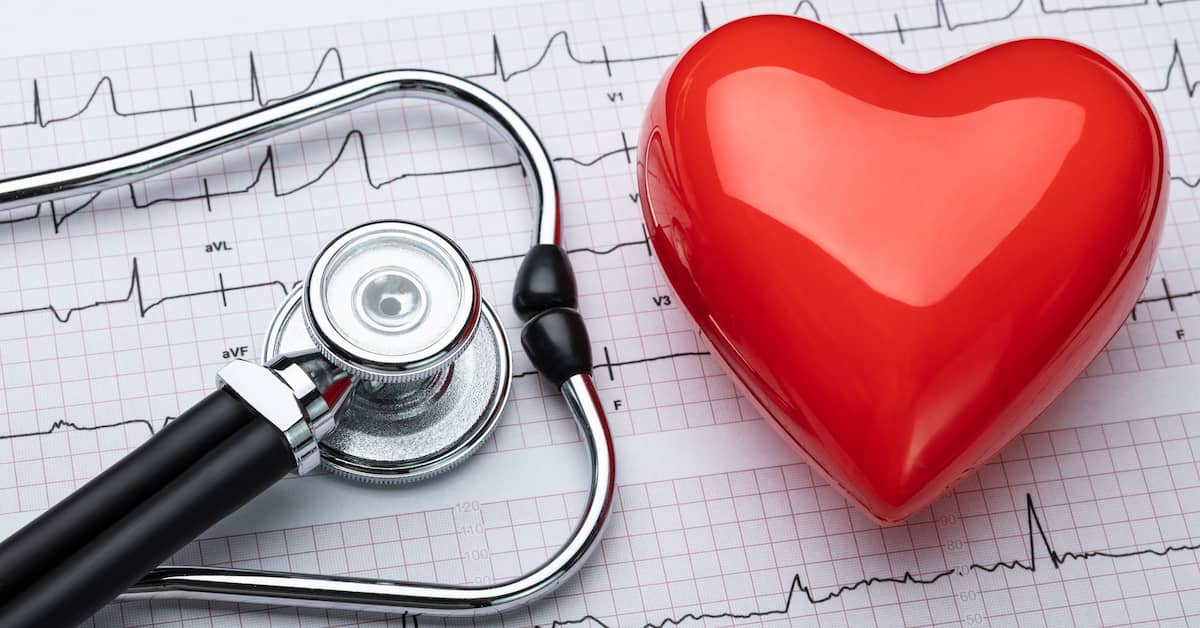
Triggers Brain Cell Death and Brain Damage
A study at the Intermountain Medical Center Heart Institute in Salt Lake City found that people with AFib often had ongoing asymptomatic brain injuries that can lead to dementia. In this study, blood tests on about 200 people with AFib found biomarkers in the blood that reflect brain injury.1 "We think patients with atrial fibrillation experience chronic, subclinical cerebral injuries," warns researcher Oxana Galenko. "It becomes absolutely critical to identify the early markers of this injury and help these patients who are at higher risk of having subsequent neurodegenerative problems, such as cognitive decline and dementia." Dr. Galenko believes that these injuries arise when AFib alters the body's blood flow in and out of the brain which impacts brain tissue. It also disrupts the blood-brain barrier which filters the blood that enters and exits the brain and spinal cord. Other investigations have confirmed AFib's brain dangers. For example, a large study in Switzerland of about 1,400 AFib sufferers whose average age was 73, and who’d never had a stroke, revealed that 41 percent had brain damage. This damage included small bleeds in the brain, brain lesions and cerebral infarcts (areas of brain cells dead from lack of oxygen).2 In addition, tests at Emory University demonstrated that folks with AFib experience greater brain shrinkage as they age.3 Of course, brain shrinkage has been linked to cognitive decline.AFib is a Growing Problem
The number of Americans suffering from AFib is expected to more than double to 12 million by the year 2030. One reason for this dangerous increase is because the U.S. population is growing older and you're more likely to suffer AFib with advancing age. Other risk factors include diabetes, high blood pressure, obesity, kidney disease, having European ancestry, smoking and moderate to high alcohol intake.4 If you’re having serious problems with AFib and experience a racing heartbeat, you should consult your healthcare provider as soon as possible. It’s not a health problem you should ignore. Conventional treatments include strict control of your blood pressure – which reduces Afib according to a Wake Forest University study.5 Alternatively, certain drugs can help reset your heart rhythm. There’s also catheter ablation, an operation that forms small scars in heart tissue, which can stop irregular heart rhythms. If you suffer from AFib you need to get it treated as soon as possible. But that doesn’t mean you’ll have to take drugs or undergo an operation. There are natural ways to lower your AFib risk and possibly keep it from coming back if it does occur.Natural Ways to Fight AFib
- Practicing yoga: A three-month study at the University of Kansas demonstrates that yoga can reduce the symptoms of AFib and improve the quality of life for people with heart arrhythmia problems.6
- Trying acupuncture: Research in Italy found that acupuncture “prevents arrhythmic recurrences” in people with AFib. In this research, inserting needles in the acupuncture points called the Neiguan, Shenmen, and Xinshu spots was found to be beneficial.7
- Getting more sleep: An analysis at the University of Pittsburgh found that not getting enough sleep increases your chances of AFib. In general, their results indicate that every one-hour reduction in sleep increases your AFib risk by 17 percent.8
- Consuming more caffeine: According to a study at the Baker Heart and Diabetes Institute in Australia, people, in general, who get around 300 mg of caffeine a day – the amount in three cups of coffee – have a reduced risk of AFib. But they caution that in some people, caffeine can cause AFib. So, if you’re sensitive to caffeine you might avoid this recommendation.
- Eliminating alcohol: Studies show that imbibing any amount of alcohol increases your chances of AFib. But researchers say that, paradoxically, drinking a small amount – like one drink per day – has been linked to better heart health in general. Nevertheless, if you have AFib problems, alcohol should be off-limits.9
- Reducing stress: Studies have also shown that excessive stress in your daily life can bring on AFib.10
- Brushing your teeth well: It hasn’t been proven clinically, but some researchers believe that taking better care of your teeth and gums probably lowers your risk of AFib.11 This is certainly true for a host of other heart problems.
- https://pubmed.ncbi.nlm.nih.gov/31575426/
- https://pubmed.ncbi.nlm.nih.gov/30846109/
- https://pubmed.ncbi.nlm.nih.gov/31771759/
- https://www.nm.org/healthbeat/healthy-tips/is-afib-on-the-rise
- https://pubmed.ncbi.nlm.nih.gov/32362229/
- https://pubmed.ncbi.nlm.nih.gov/23375926/
- https://pubmed.ncbi.nlm.nih.gov/20807278/
- https://www.ncbi.nlm.nih.gov/pmc/articles/PMC6717116/
- https://academic.oup.com/eurheartj/article/42/12/1178/6090247
- https://www.ncbi.nlm.nih.gov/pmc/articles/PMC4936185/
- https://academic.oup.com/eurjpc/article/27/17/1832/6125499
